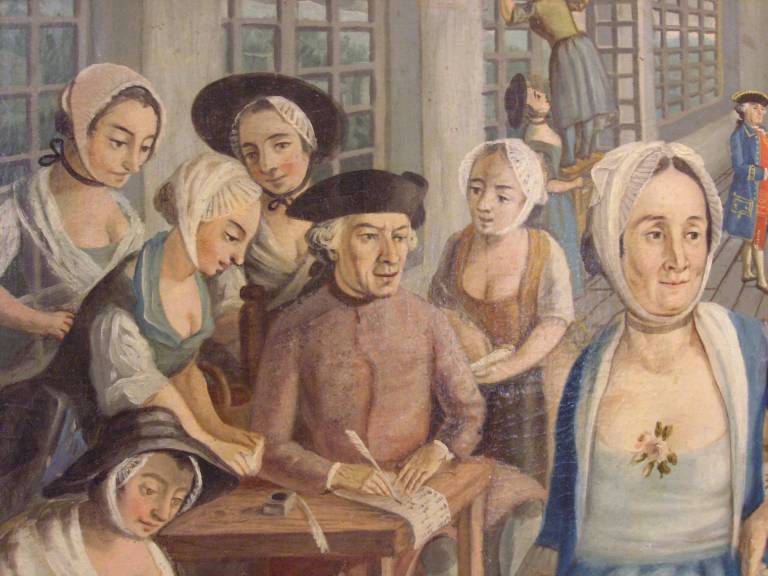Neale Lecture 2022 - Capitalism: a concept too big to Fail?
15 November 2022, 6:00 pm–8:30 pm

The early modern period and the formation of an idea. Craig Muldrew, Professor of Early Modern Economic and Social History, University of Cambridge.
This event is free.
Event Information
Open to
- All
Availability
- Yes
Cost
- Free
Organiser
-
Helena Vowles-Shorrock – History
Location
-
Gustave Tuck Lecture TheatreWilkins Building (Main Building)Gower StreetLondonWC1E 6BT
This paper will assess how historians of the early modern world have used the concept of capitalism as an interpretive framework. It examines how the term came into being in the early twentieth century, and then how different historians took it up to argue that it emerged in European societies in the period from roughly the Italian Renaissance until the end of the eighteenth century. The use of the term capitalism is so pervasive today that trying to define what it means in practice seems impossible. Yet, understanding it is undeniably crucial to any aspect of politics, individual choice, and collective action, since the concept continues to be used, in many different and ambiguous ways. This paper argues that greater understanding can only be gained by being more precise, and that to call something capitalism it must fundamentally involve the use of the abstract financial value, which came to be called capital in the early modern period. The formation of such value eventually gave its owners much power, but before that could happen the institutions and beliefs which supported the existence of such intangible value needed to be created and spread through society.
This lecture will be followed by a drinks reception in the South Cloisters.
This event will be live streamed here: https://youtu.be/URY0N6bl4g8
Image: An overseer recording the labour of the cotton painters for payment in an account. Joseph Gabriel Rossetti (18th century). 1764 Orange, musee Municipal - Manufacture of Indian fabric of brothers Wetter (Wetter textile factory) in Orange. Photograph taken by Professor Craig Muldrew.
About the Speaker
Professor Craig Muldrew
Professor of Early Modern Economic and Social History at University of Cambridge
Craig Muldrew’s research focuses on two areas. The first is the investigation of the economic and social role of trust in the development of the market economy in England between 1500-1700. This concentrates on the centrality of reputation to financial credit, and the insecurity of wealth in a world of innumerable debts. In this work he has examined the relationship between the actual working of economic contracts and obligations in relation to the development of natural law theory and commercial society. The second is the living standards and work of agricultural labourers in the early modern English economy, published as a monograph entitled, Food, Energy and the Industrious Revolution: Work and Material Culture in Agrarian England, 1550–1780, (CUP, 2011). This book engages with two important topics on which there is a growing literature. The first is the concept of the industrious revolution put forward by Jan de Vries arguing that increasing consumption patterns in the seventeenth century led to longer hours of work. The other is the history of food. Food is important not only because it formed such a large percentage of labouring household’s expenditure, but also because it was a source of energy. Before the widespread harnessing of machine energy based on carbon fuel, almost all labour had to be done by men and animals. Bread and beer were the petrol of this world.
Craig Muldrew has also written articles in the field of legal history concerning debt litigation and its relationship to the nature of community, and articles on the cultural nature of money, and wages in the early modern period. He is also interested in the importance of industrial growth in the early modern English economy, and is engaged on a long term project examining the development of the concept of self-control and its effect on the structure of community and on the creation of savings, as well as how local paper credit came to be trusted in eighteenth century England.
More about Professor Craig Muldrew Close
Close

